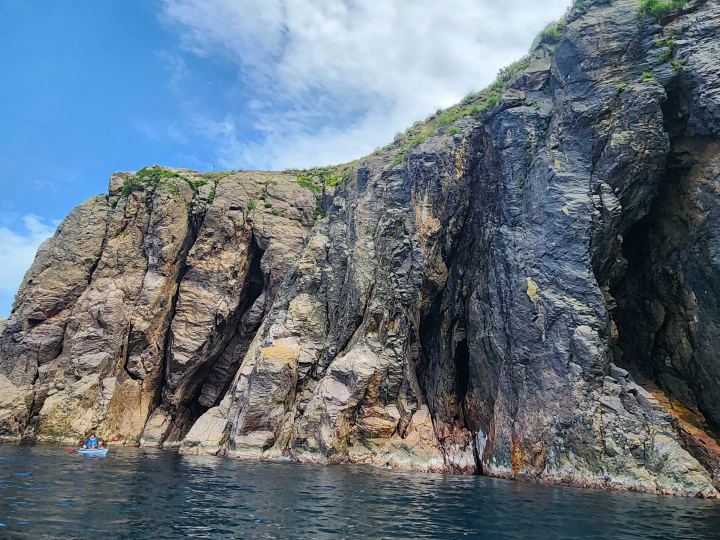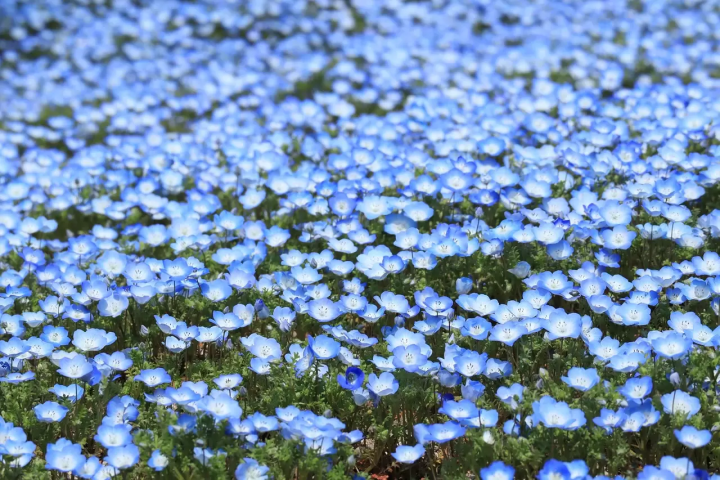Kagawa Diary - Guarding The Most Beautiful Sunset Spot In Japan

Chichibugahama Beach in Kagawa is known as one of the most beautiful sunset spots in Japan. The beach is kept clean through the efforts of local volunteers. They told us what are the hidden charms of this wonderful beach.
Chichibugahama Beach - The Most Beautiful Sunset Spot in Japan
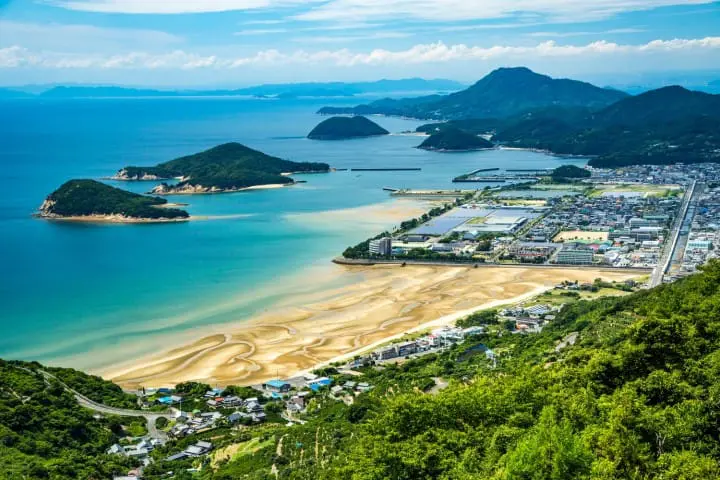
Picture courtesy of Mitoyo Tourism and Exchange Authority
"When we were in elementary school, we didn't have a swimming pool at school. So we would often come to Chichibugahama to swim. I still remember the delicious taste of mizuame (water candy) we used to eat after a swim. It was in the 1950s", told me Mr. Kenji Shiota with a smile.
Mr. Shiota is a member of Chichibu no Kai (Chichibu Association), a group that has been cleaning Chichibugahama Beach once a month for the past 23 years.

Picture courtesy of Mitoyo Tourism and Exchange Authority
Chichibugahama is famous for its gorgeous sunset. After having been designated the most beautiful sunset spot in Japan by a tourism journal in 2018, the beach is now visited by many travelers from various countries.
You can see people taking photos, making sand mermaids on the beach, and just enjoying the soft breeze of the Setouchi Inland Sea.
However, the beach was not thought of as a sightseeing spot before. At one time, there was even a plan of a landfill.
Plans of Landfilling the Beach

Mr. Shiota (right), Mrs. Mori (center), Mr. Kamoda (left)
In 1994, there was a plan to landfill Chichibugahama. Apparently, some citizens thought that building factories on the beach would contribute to the economic development of the city.
At that time, many seas in Japan were severely contaminated. There used to be garbage all around the beaches.
"Chichibugahama was no exception. There was a lot of plastic garbage on the beach. We even saw the water near the sea become red with sludge."
Mr. Shiota was a staff of the local municipality at that time. He discussed the landfill project again and again with his coworkers. One of them was his classmate from the elementary school, Takashi Kamoda, who was now a fisherman, and Isoo Suga, who was a constructor.
One day, as they were enjoying a drink together, they remembered their childhood days, which were full of precious memories of Chichibugahama.
"Everyone was talking about economic profit around us. But Kamoda, Suga and I felt we needed to express our love for this beach by action, not with words," said Mr. Shiota.
Volunteering to Clean the Beach
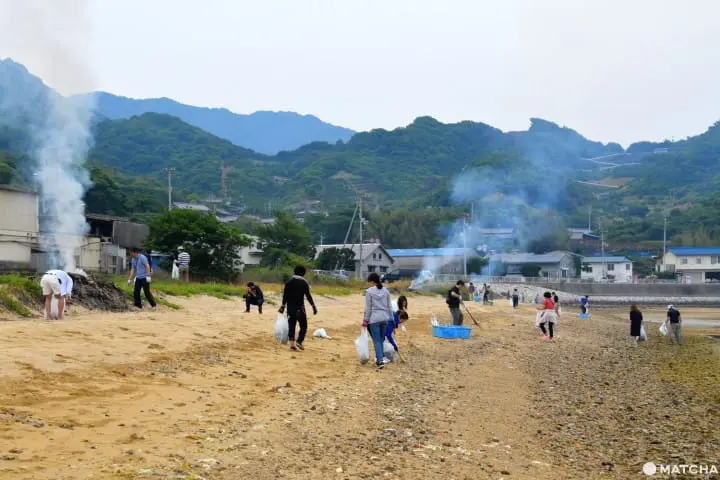
The gathering in June, 2019
Mr. Shiota, Mr. Kamoda, Mr. Suga, and other members decided to clean the beach as volunteers. They started to gather on the first Sunday of every month at six to seven o'clock, and pick up the garbage on the beach for a few hours.
"The first time we gathered was in February. It was still dark and cold in the early morning. So some of us women brought sweet oshiruko soup for everyone to warm up," reminisced Mrs. Mori, the wife of an initial member of Chichibu no Kai, with a gentle smile.
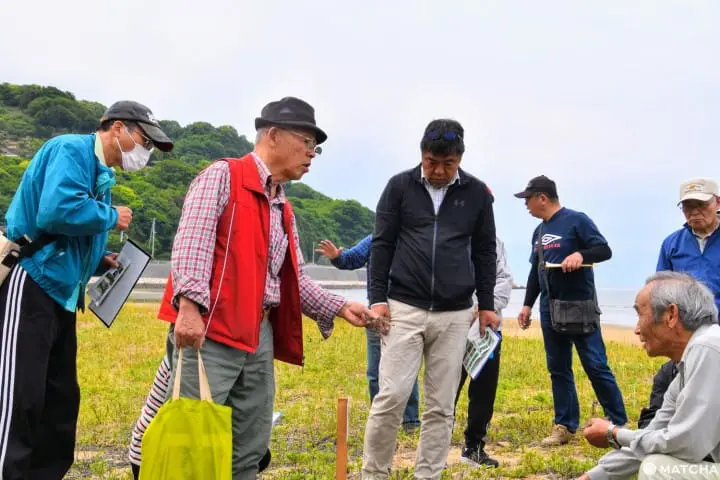
Mr. Shiota in the beach plant field
Their activity has continued ever since, for 23 years. They have been coming to the beach even on snowy days.
I asked whether they thought of quitting the work. "Never," they said. "Because we always enjoy gathering and talking after work."
As they continued the activity, the number of volunteers increased. Nowadays, there are 70 members in Chichibu no Kai, and about 50 people take part in the morning cleaning activity each time.
The Hidden Charm of Chichibugahama
Many visitors come to Chichibugahama just to take pictures. "That's nice. But there are so many other fun things to do on this beach," said Mr. Shiota, Mr. Kamoda, and Mrs. Mori with a smile.
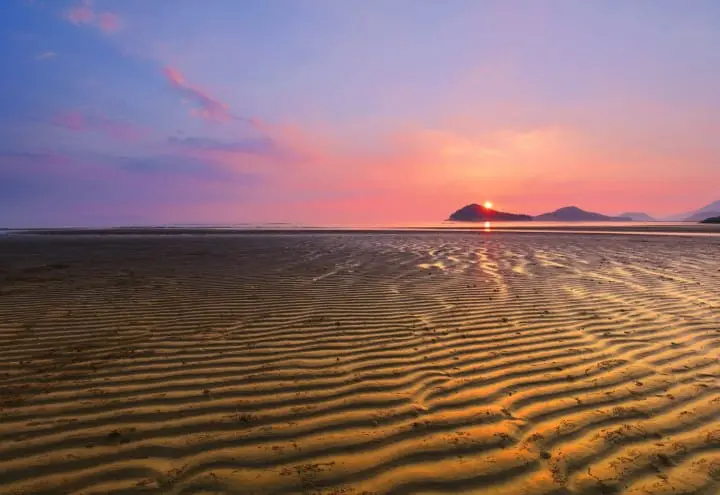
Picture courtesy of Mitoyo Tourism and Exchange Authority
"I suggest walking on the beach barefoot. The sand of Chichibugahama is really fine," said Mrs. Mori. "Especially when the waves come in and ripple marks appear on the beach, the feeling is exquisite."
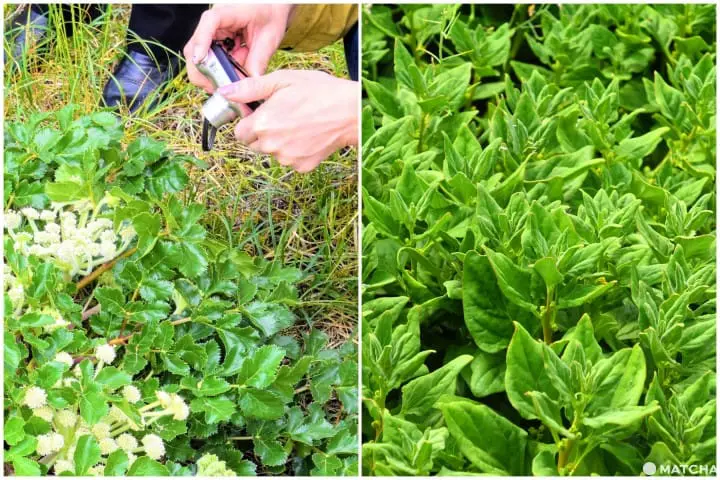
Glehnia (left) and New Zealand spinach (right)
Chichibugahama is a great place to cultivate beach plants such as glehnia (a plant in the carrot family) or New Zealand spinach.
Chichibu no Kai holds workshops and events, teaching how to cultivate marine plants on the beach.
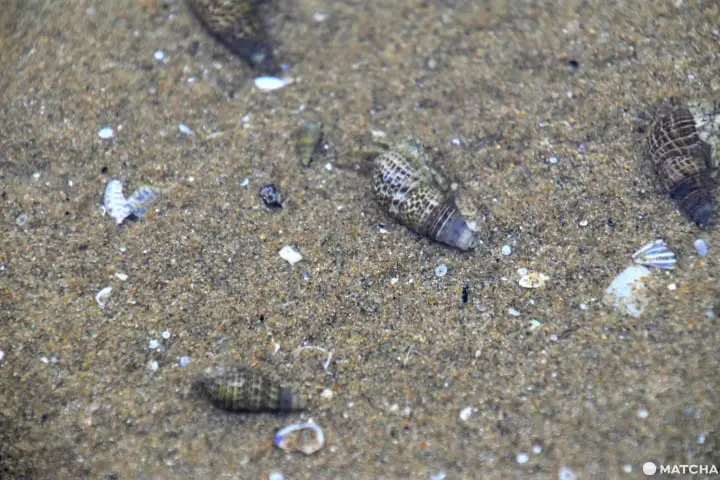
I couldn't find razor clams, but there were many small shells in the tide pool.
"At times of low tide, we can look for find razor clams on the beach. Just look at the sand carefully. If you find a small hole, that is might be the spot where a razor clam is hiding. Put salt around the hole and they will come out in a few minutes," said Mr. Shiota.
Everyone Is Welcome in Chichibugahama!
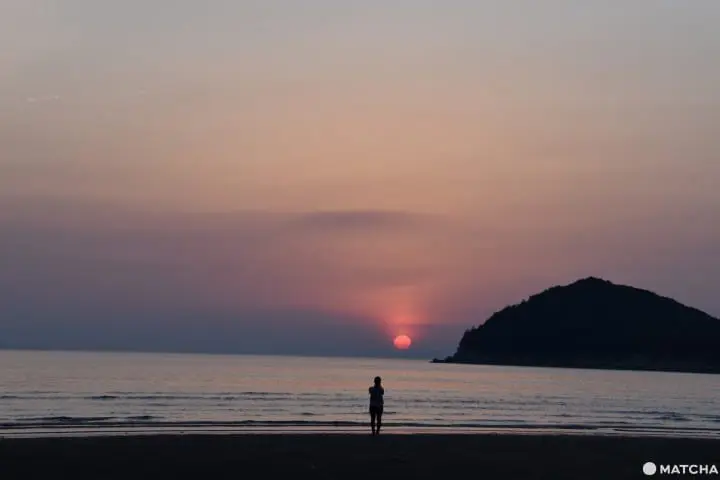
"The plastic garbage is a problem not only in Chichibugahama or Japan but in the whole world," stressed Mr. Kamoda.
"We are connected to other countries by sea. The garbage thrown away in other countries reaches Japan by sea. So I hope we can work to improve the environment together with people from around the world."
Everyone is welcome to participate in this volunteer activity. If you have a chance to come to Chichibugahama Beach on the first Sunday of the month in the morning, do join the Chichibu no Kai in their efforts to keep the beach clean.
In the cool breeze of the morning, cleaning up the beach will be a pleasant experience. By talking to the local members, you'll find out about all the hidden gems of Chichibugahama.
















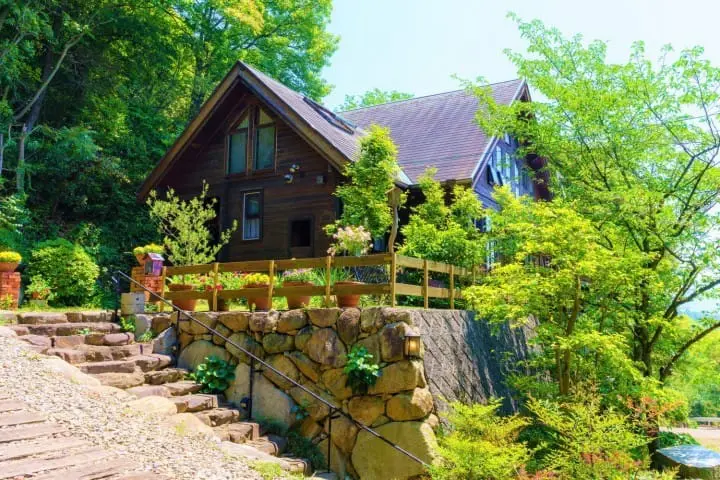

























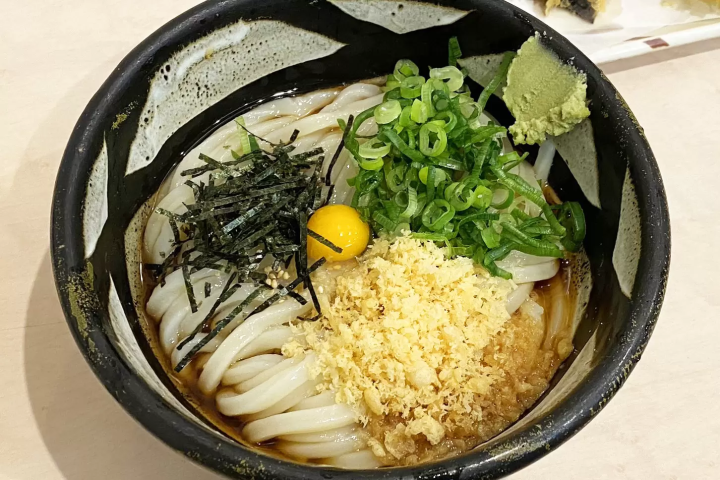
![[30 minutes by car from Nagoya] Perfect for a spring outing! 3 Tokoname picking spots in Tokoname](https://resources.matcha-jp.com/resize/720x2000/2026/01/20-256136.webp)
![[Coupon available, flagship store only] Introducing the special corner for spring sportswear and marathon events!](https://resources.matcha-jp.com/resize/720x2000/2026/02/20-259294.webp)
